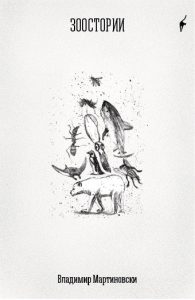 Vladimir Martinovski
Vladimir Martinovski
Vladimir Martinovski (1974) is a Macedonian poet, essayist, prose writer, literary translator and anthologist. He graduated from the Faculty of Philology "Blaže Koneski" in Skopje, where he also received his master's degree in 2001 on the topic "Interferences between Macedonian contemporary poetry and the fine arts". He received his doctorate from the University of Paris III - Sorbonne Nouvelle, on the topic "Aspects of ekphrasis poetry: S. Baudelaire, W. K. Williams, S. Janevski, V. Urošević, J. Ashbery and I. Bonfoy". He works as resident professor of the subjects "Comparative Poetics" at the Department of General and Comparative Literature at the Faculty of Philology "Blaže Koneski" at the University "Sts. Cyril and Methodius". Since September 2023, he has held the position of Dean of that faculty.
He is a member of the Executive Board of the International Association for Semiotics, the International Association for Comparative Literature, was a member of the Executive Committee of the European Network for Comparative Studies, the Board of Directors of the “Struga Poetry Evenings”, the Presidency of the Writers’ Association of Macedonia, was President of the Society for Comparative Literature of Macedonia, as well as Vice President of the Macedonian PEN.
His poetry has been published in about twenty languages, and is represented in a large number of anthologies and thematic selections.
Martinovski is also involved in music, participating in musical projects and releases of: The Orchestra of Original Folk Instruments "Pece Atanasovski", "Kaldrma" and "Baklava".

Zoostories
“Begemot”, Skopje, 2019
"Before us is a prose book consisting of a total of 77 stories, divided into 11 cycles, each built of 7 prose stories. Zoostories in this work by Martinovski is the designation of a poetic affiliation to a universal, rather than a completely spiritual observation and registration of the entire living world, that of insects, animals, beasts, plants, nature, landscapes, phenomena, behind which stands a, so to speak, Spinozian (pan)naturalism, at the center of which, of course, stands man....His discourse is diverse: haiku and haibun are mixed in it in the middle or as points in his prose discourse. Sometimes it is narrative, proselytically extensive, other times anecdotal, thirdly aphoristic, often inclined to rhyme (rhyme) in prose, as the feeling draws."
Tomislav Osmanli
